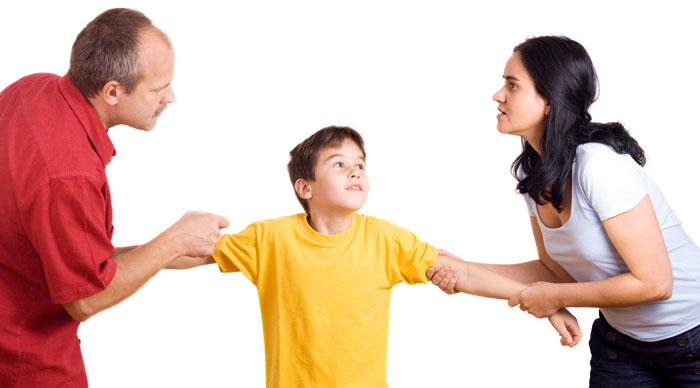
 Any child who’s parents are going through a divorce is going to experience a range of emotions to some degree. This could include emotional pain, feelings of loss, sadness, frustration and possibly abandonment or rejection. As a parent it is important to help children through this potentially difficult time in their lives and if possible to protect them as much as possible from the impact the divorce process may be having on everybody’s relationship both now and in the future.
Any child who’s parents are going through a divorce is going to experience a range of emotions to some degree. This could include emotional pain, feelings of loss, sadness, frustration and possibly abandonment or rejection. As a parent it is important to help children through this potentially difficult time in their lives and if possible to protect them as much as possible from the impact the divorce process may be having on everybody’s relationship both now and in the future.
There are several things that you can do to help your children get through the divorce with as little difficulty as possible. Both parents working together on this goal can make it even easier for the children and although this would be ideal, I know it may not be possible in a high conflict scenario.
Love
During a separation, children at this time need even more love from parents than they did prior to the divorce. This means telling your children every chance to get that you love them, think of them often, and will always be there for them. Try spending some extra one-on-one time with your kids and if they are old enough, encourage them to talk about their concerns or fears.
Support and Security
Just like love, kids need to feel that they are supported, secure and safe at all times, but this is especially important during the divorce. Often children feel very insecure about their relationship with one or both of the parents, and may feel that the parent that moves out of the house has rejected them.
Address their fears by talking to the children about the divorce, and explain that both parents will still be very involved in their lives. This will work even in very young children (18 months or older) as although they may not yet have the vocabulary to express themselves, they will absorb and understand alot more than you give them credit for. Get down to their eye level, make sure they are looking at you (and not at their favorite new toy) and use simple words to describe what’s happening. Your young child may not have any acknowledgement of what you’re saying but you can bet that it went in and is being processed.
Show children your support and commitment to them by being there, and following through on any plans or events. Older children may also feel that the parent they spend the most time with may not have the financial means to support them, especially if money is an issue in the divorce or in the arguments leading up to the divorce. If this is an issue, assure your children that you have this under control (assuming you do). Children should not feel concern over financial affairs; they need to know that Mum and Dad have this handled.
Avoiding Conflict
Children need to see that Mum and Dad still can work together to be good parents. They should never be exposed to fighting, negative comments about the other parent (which can contribute to parental alienation), or conflict between parents. If you have a high-conflict relationship try exchanging the children at a neutral spot like a McDonalds or a petrol station or perhaps leave the children with a friend and have the other parent pick them up there so you don’t have to meet face to face. It is critical that children not be exposed to the stress and anxiety of parental conflict.
Keep in mind that the family violence laws can also be used to protect children witnessing or suffering the effects of fighting or abuse of a parent. This can mean that a protection order can be made for a parent that includes the children and will suspend existing contact (even if it’s via a court order).
Extended Family
Talk to your extended families to make sure that they are following the same expectations for providing love, support, and only positive comments. Encourage your children to talk to other family members about the divorce if they feel comfortable with this.
Setting a Routine
Children thrive on structure and routine. As soon as possible set a schedule for children to spend time with both parents. Try to stick to the schedule as much as possible as this allows the children to plan for times with both parents, and to feel a part of both parents’ lives.
Be Consistent
Try to set similar expectations for helping our around the house (if they are old enough), discipline and daily routines in both mum and dads house. Consistency is particularly important if you have younger children, as they will adjust to spending time in both homes much quicker if they are consistent.



